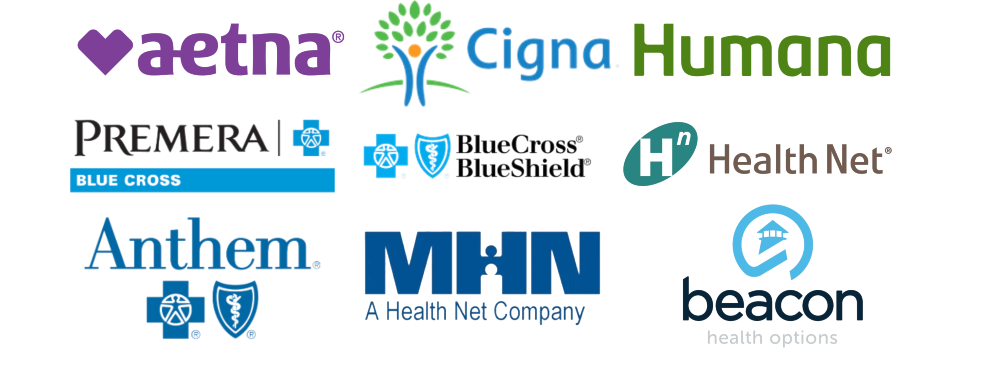Aftercare In Riverside County
Shahida's Place
We offer individualized, residential addiction treatment in Corona, California.
Understanding Addiction
For anyone who has been struggling with addiction and substance abuse, one of the hardest obstacles to overcome is admitting they have a problem. Usually, it is a matter of perception when they begin to realize that what they had once believed they had under control had not been in their control for a long time.
Addiction might have been something they saw as a problem other people had and things would never get this far. The mantra of “I can quit at any time” is something they probably told themselves constantly, and only when they hit rock bottom did they get the clarity to understand what was happening.
After all, addiction isn’t regarded as a problem until it begins to pull someone’s life apart at the seams. It isn’t just about quitting. It’s about committing to the choice of quitting every moment for the rest of your life.
Entering Treatment
Substance abuse treatment, whether it is addictive drugs or alcohol, is usually done in a controlled environment, where the source of that addiction is cut off completely, or a substitute is administered in controlled doses to prevent shock and life-threatening withdrawal reactions.
Over a period of several weeks of forced sobriety without access to substances, the patient’s body begins to adjust to the lack of a supply of this substance to their body. Unfortunately with addiction, the damage has been done to the body and mind, creating a physical as well as psychological dependence on the substance. When treatment ends, the craving never really goes away.
The person with the addiction would return to the same environment that fostered their addiction, with only a few tools to keep in their toolbox to continue to battle their addiction. This is why aftercare is vital to continuing with sobriety.
Addiction Aftercare
Aftercare is a program that helps those who have begun treatment and who are trying to rebuild their lives to something radically different than what they had been experiencing: namely, a life of sobriety. For addicts, the substances and behaviors associated with addiction occupy a large portion of their time, effort, and energy. If nearly every waking hour of your life is consumed with obtaining and using a substance, choosing to eliminate that substance from your life is a decision that must be made in nearly every moment of your life.
That is why addiction is considered an illness since the brain and body have been rewired to need that substance. Without aftercare, those struggling with this chronic illness would likely relapse, oftentimes falling deeper into the depths of addiction, which could eventually end their lives.
Components of Addiction Aftercare
Aftercare sets up a system that allows participants to restructure their lives based on an environment of sobriety rather than addiction. Here are some of the elements of aftercare programs:
In sober living, establishing a routine is crucial to recovery. Those in recovery often find they have had to cut ties with friends or family who are addicts or enablers of their addiction. When all of your friends are at the bar or drug dealers, sobriety can be a lonely experience. Sober living facilities provide the social framework of a sober lifestyle with other like minded people.
Accountability is important in building a continuation of sobriety. Outpatient programs offer regular testing, checking into a facility 3-5 days per week, a few hours each day, and also provide group or individual therapy on a regular (if not daily) basis. Addiction is often trauma-related and continual treatment after rehab is important in working through those issues.
Individual and group therapy is something recovering addicts can benefit a lot from over the long term. Getting to the root of the source of addiction is important, as well as the validation therapy provides to battle an illness such as addiction. A good therapist will work with someone in recovery to establish good coping skills and tools to add to their recovery toolbox.
Some of the triggers of substance abuse are psychological in nature. Stress, coping strategies, cravings, and numbing oneself to pain are often pathways back to using. Therapy gives other alternatives to reacting to these triggers.
Those struggling with addiction are not alone. Addiction is a disease that affects millions, and meetings establish support networks and a sense of fellowship when it comes to moving forward through recovery. 12 Step Programs such as Alcoholics Anonymous or Narcotics Anonymous are very widely known and work for a lot of recovering addicts, but there are other programs as well which might suit one’s needs differently and more effectively.
Some of the triggers of substance abuse are psychological in nature. Stress, coping strategies, cravings, and numbing oneself to pain are often pathways back to using. Therapy gives other alternatives to reacting to these triggers.
Sponsorship and Mentorship helps recovering addicts outside of a meeting or a facility. With this dynamic, a mentor can show empathy to someone who is going through the process of recovery, knowing what is happening because they have been there themselves. By establishing a mentor/sponsor relationship, many recovering users find strength in numbers and lose the feeling of isolation that can cause relapses.
Some of the triggers of substance abuse are psychological in nature. Stress, coping strategies, cravings, and numbing oneself to pain are often pathways back to using. Therapy gives other alternatives to reacting to these triggers.
Sobriety is a big lifestyle change from addiction, and without the routine of something like drinking or drug use, many people in recovery need something to fill that void. The chaos of substance use was often exciting, and sobriety might be a boring departure from that other life. Sometimes a trigger for relapse is simply “this is what I used to do after work”. Aftercare provides ways to rechannel those routines into a new life.
At some point, the student of this new life can become a teacher, and like a mentor/sponsorship method, those who have successfully gone through aftercare can give back to others who are just beginning their journey.
Invest In Your Recovery
Rehabilitation is a tool used to break the cycle of addiction, but aftercare is a way to maintain that sobriety. Getting clean is only the beginning, and staying clean is a lifelong commitment.
Aftercare allows participants to establish new routines, understand how accountability can help them make better choices to maintain sobriety, and even begin to rewire those pathways in their minds that are so accomodating to triggers such as stress, solitude, trauma, pain, and many others.
Aftercare provides a wealth of coping mechanisms, support systems, and ways to readjust to a sober life that rehab only begins to scratch the surface of. Think of how a broken bone must heal. Rehab is setting the bone, and aftercare is the cast that holds it in place while it heals.

Contact Us Today
Shahida’s Place offers the help you need if you or a loved one are struggling with drug and alcohol abuse. If you are interested in learning more about our specific treatment recovery programs or need help understanding your health insurance benefits, our team is happy to assist you. We can help you bet on yourself and maintain long-term recovery.
Contact Us For A Free Insurance Verification
We Are In-Network With
We Also Accept


